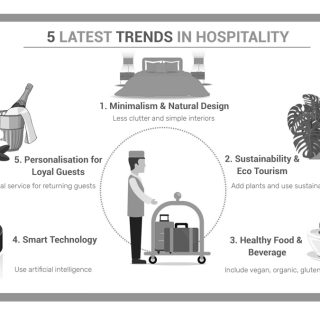The hospitality industry thrives on communication. From welcoming guests to resolving conflicts and everything in between, effective communication plays a pivotal role in ensuring seamless operations and exceptional guest experiences. In this article, we delve into the various facets of communication skills within the hospitality sector and explore how professionals can enhance their communication prowess to excel in their roles.

Understanding Communication Skills
Communication skills encompass a range of abilities, including verbal, nonverbal, and written communication, along with active listening, interpersonal skills, and more. In the context of the hospitality industry, these skills are crucial for fostering positive interactions with guests, colleagues, and stakeholders.
Verbal Communication
Clear and articulate verbal communication is essential for conveying information, addressing guest inquiries, and providing instructions effectively. Hospitality professionals must hone their verbal communication skills to ensure clarity and professionalism in their interactions.
Nonverbal Communication
Beyond words, nonverbal cues such as body language, facial expressions, and gestures also convey messages. In hospitality, understanding and leveraging nonverbal communication can significantly impact guest perceptions and satisfaction.
Written Communication
Written communication plays a vital role in documentation, correspondence, and conveying detailed information. Hospitality staff should master the art of crafting clear and concise written messages, whether in emails, reports, or guest communications.
Listening Skills
Active listening is an invaluable skill for hospitality professionals, enabling them to understand guest needs, address concerns, and build rapport. By actively engaging with guests and colleagues, hospitality staff can enhance guest satisfaction and foster positive relationships.
Interpersonal Skills
Building strong interpersonal relationships is fundamental in the hospitality industry. Professionals must demonstrate empathy, patience, and effective communication to connect with guests and colleagues on a personal level, fostering loyalty and trust.
Cross-Cultural Communication
In today’s diverse hospitality landscape, understanding and respecting cultural differences are essential for successful communication. Hospitality professionals should adapt their communication styles to accommodate guests from various cultural backgrounds, enhancing inclusivity and guest satisfaction.
Conflict Resolution
Conflicts may arise in hospitality settings, requiring effective communication and mediation skills to resolve disputes promptly and amicably. Hospitality professionals should approach conflicts with diplomacy and professionalism, prioritizing guest satisfaction and maintaining positive relationships.
Leadership Communication
Effective leadership communication is critical for guiding teams, inspiring excellence, and fostering a positive work environment. Hospitality managers and leaders should lead by example, communicating vision, expectations, and feedback clearly and consistently.
Training and Development
Investing in communication training programs empowers hospitality staff to refine their skills and adapt to evolving industry standards. Continuous development ensures that professionals remain adept at communication strategies and techniques, enhancing overall service quality.
Customer Service Excellence
Communication lies at the heart of exceptional customer service in hospitality. By actively listening to guest feedback, anticipating needs, and providing personalized experiences, hospitality professionals can exceed guest expectations and cultivate loyalty.
Technology and Communication
Technology plays a vital role in modern hospitality communication, facilitating seamless interactions and streamlining operations. From online booking platforms to mobile concierge services, leveraging technology enhances guest engagement and satisfaction.
Adapting to Industry Trends
As the hospitality industry evolves, professionals must embrace new communication trends and technologies while upholding traditional hospitality values. By staying agile and innovative, hospitality professionals can navigate industry shifts while maintaining high standards of communication.
Conclusion
Effective communication skills are indispensable in the hospitality industry, enabling professionals to deliver exceptional service, build meaningful relationships, and adapt to changing guest needs. By honing verbal, nonverbal, and written communication skills, hospitality professionals can create memorable experiences and drive success in their roles.
Communication skills are vital for fostering positive interactions with guests, colleagues, and stakeholders, ultimately enhancing guest satisfaction and driving business success.
Hospitality professionals can enhance their communication skills through training programs, practice, and feedback. Active listening, empathy, and cultural sensitivity are also key components of effective communication.
Technology streamlines communication processes in hospitality, enabling seamless interactions and personalized experiences for guests. From online booking platforms to digital concierge services, technology enhances guest engagement and satisfaction.
Effective communication enables hospitality professionals to understand guest needs, address concerns promptly, and deliver personalized experiences, resulting in exceptional customer service and guest loyalty.
By staying abreast of industry trends and embracing new technologies, hospitality professionals can adapt their communication strategies to meet changing guest expectations while maintaining high service standards.




